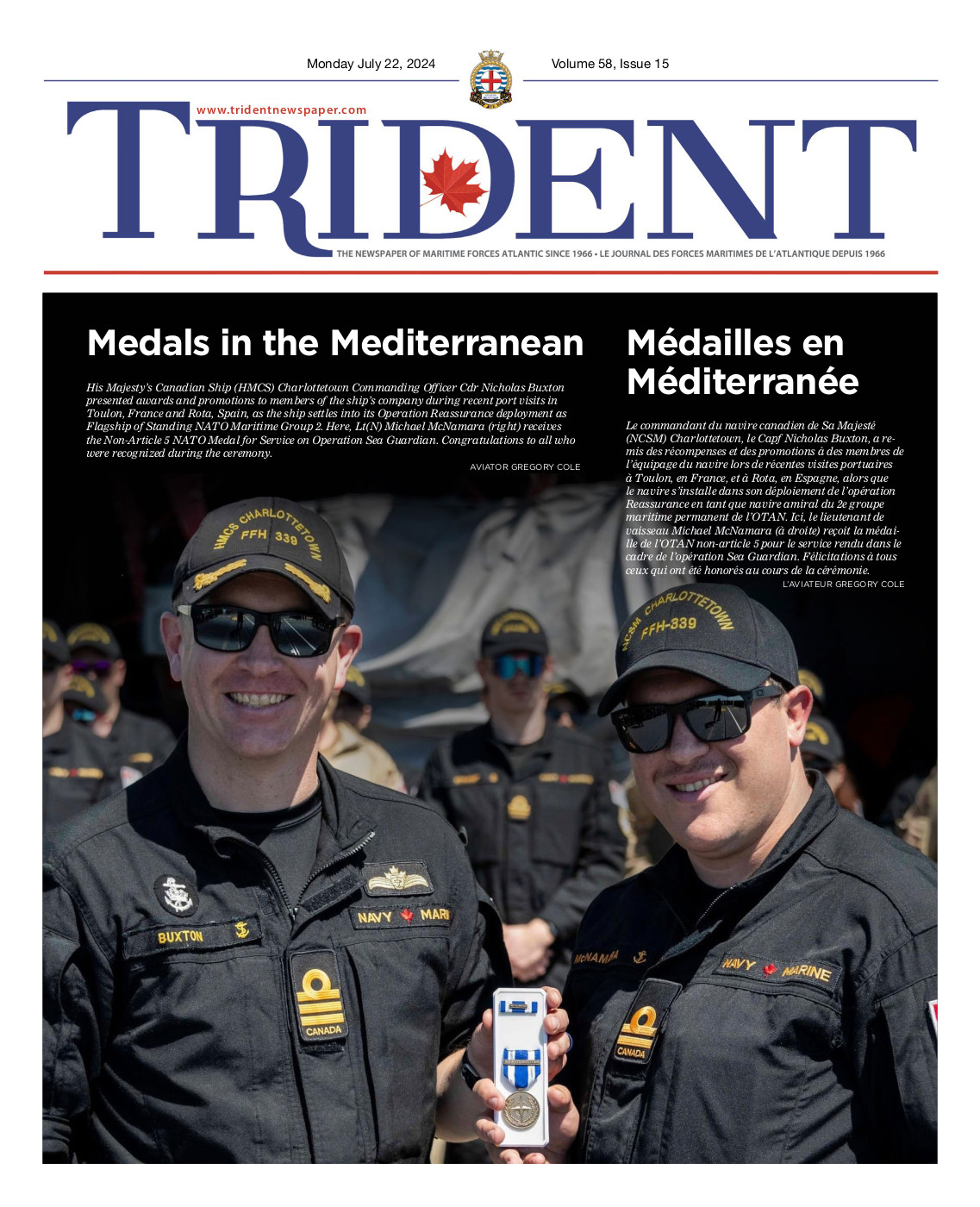
RCN Digital Leadership series: Lieutenant(N) Bob Mackay
By Naval Personnel and Training Group
In this series, we showcase digital leadership across the Royal Canadian Navy (RCN) to illustrate how our enterprise solutions are successfully leveraged for the benefit of our teams.
Born and raised in friendly Manitoba, Bob Mackay majored in Zoology (with a double minor in Geography and Statistics) at Brandon University. When he realized that pursuing a Master’s degree in Oceanography would be expensive, he decided to abandon prairie life and study the ocean via the Royal Canadian Navy (RCN). He joined in September 2003 as a direct entry Naval Warfare Officer.
He has always had a keen interest in technology and figuring out how things work. At home, he is the proud owner of a computer graveyard and is pursuing his interest in remote control vehicles by building an underwater drone (ROV). He has also been wrestling with a 10TB hub to manage his family’s twelve devices.
Bob is now the L1 Analytics Staff Officer for NPM located at CFB Esquimalt. While enjoying his previous roles, this position is the first time he has been able to fully leverage his scientific background within the military. His current responsibilities include determining personnel statistics and the current training levels in the RCN. He also explores organizational patterns, including capacity and attrition levels.
As a superuser of Power BI, he creates products that allow Command to make more informed decisions. To develop these reports, he draws on data from BobJ/Business Warehouse and Monitor Mass. He uses Power BI to display information in a way that is easily understood by everyone and to answer a specific question. He likes Power BI’s usability and efficiency; a report can be generated within a day or two. BobJ/Business Warehouse is relied on to obtain large amounts of data; Monitor Mass is better suited for retrieving more precise data sets. (Note that the source of the RCN’s data continues to be HRMS and MM as our systems of record and our transactional database.)
To improve your analytical skills within the military context, Robert has the following recommendations:
- Provide clear explanations of data models and the data itself.
- Explain how the final results were generated.
- Share data with someone unfamiliar with the data set to confirm how your work is interpreted. Then perform a spot-check of your results to confirm accuracy.
- Develop and test your query early to confirm system performance and results; refresh the results prior to preparing the report.
- Refine your results to ensure a simple presentation.
- Focus on the original analytics question; do not add extra data or queries unless requested.





